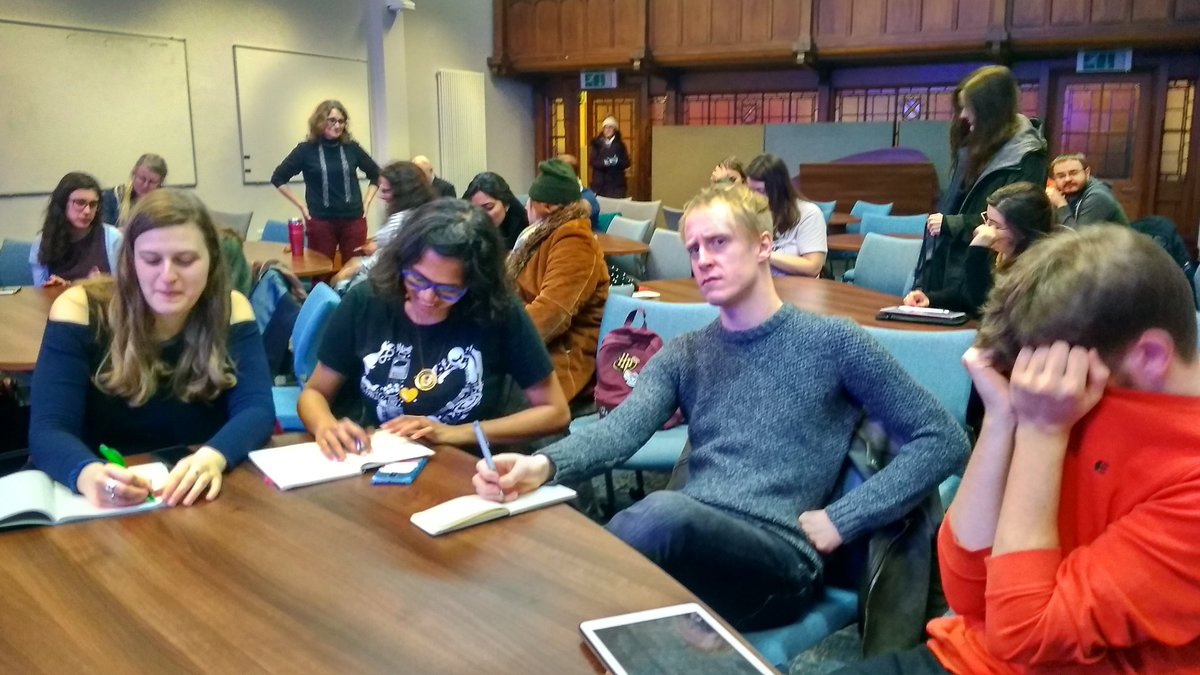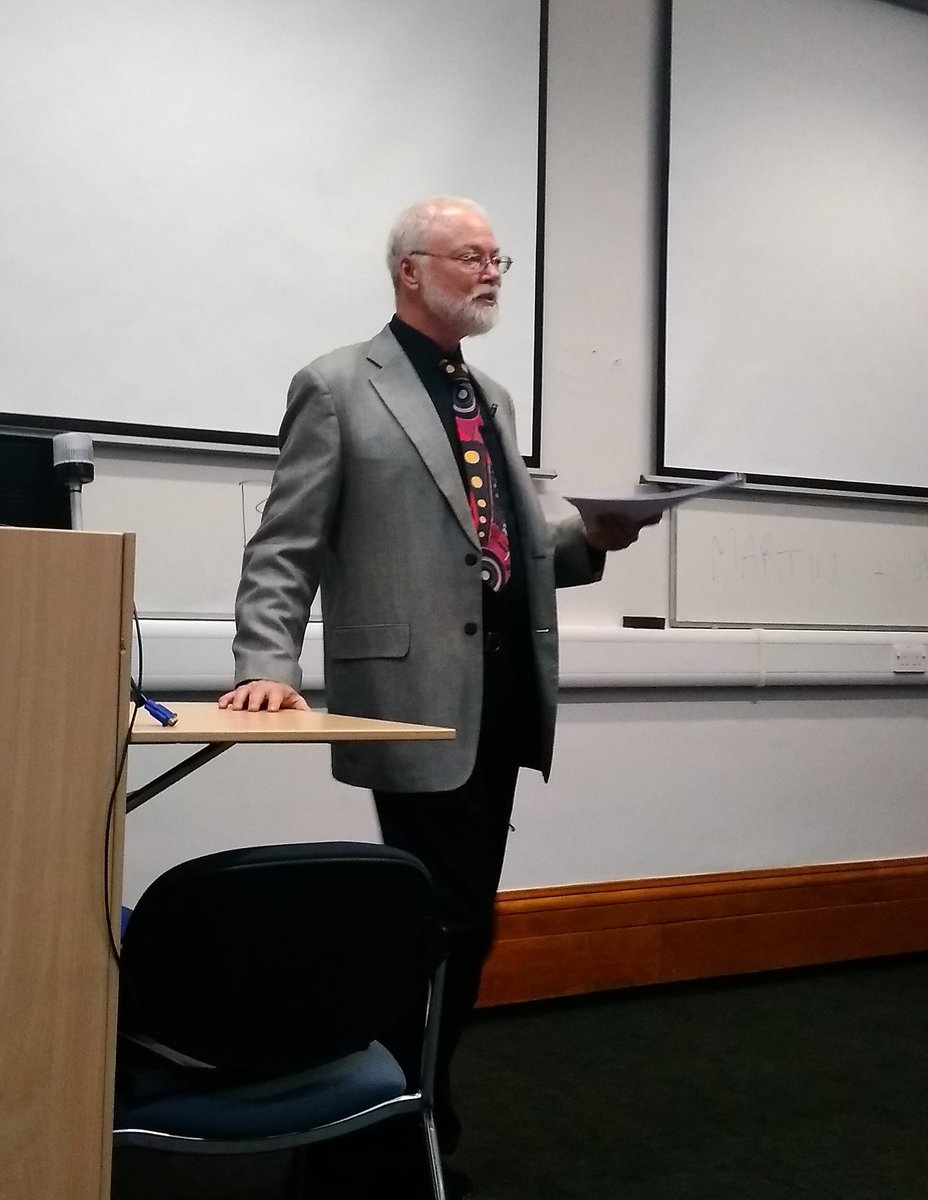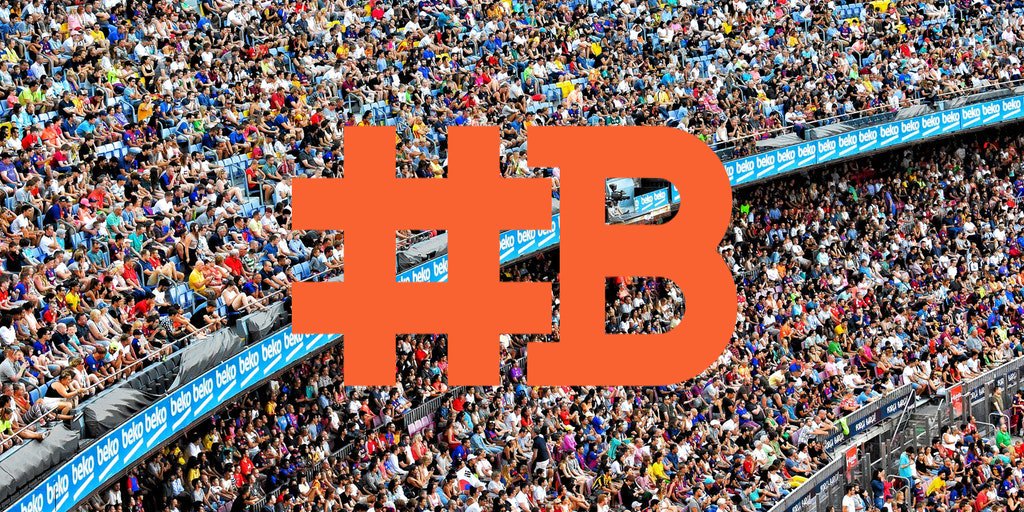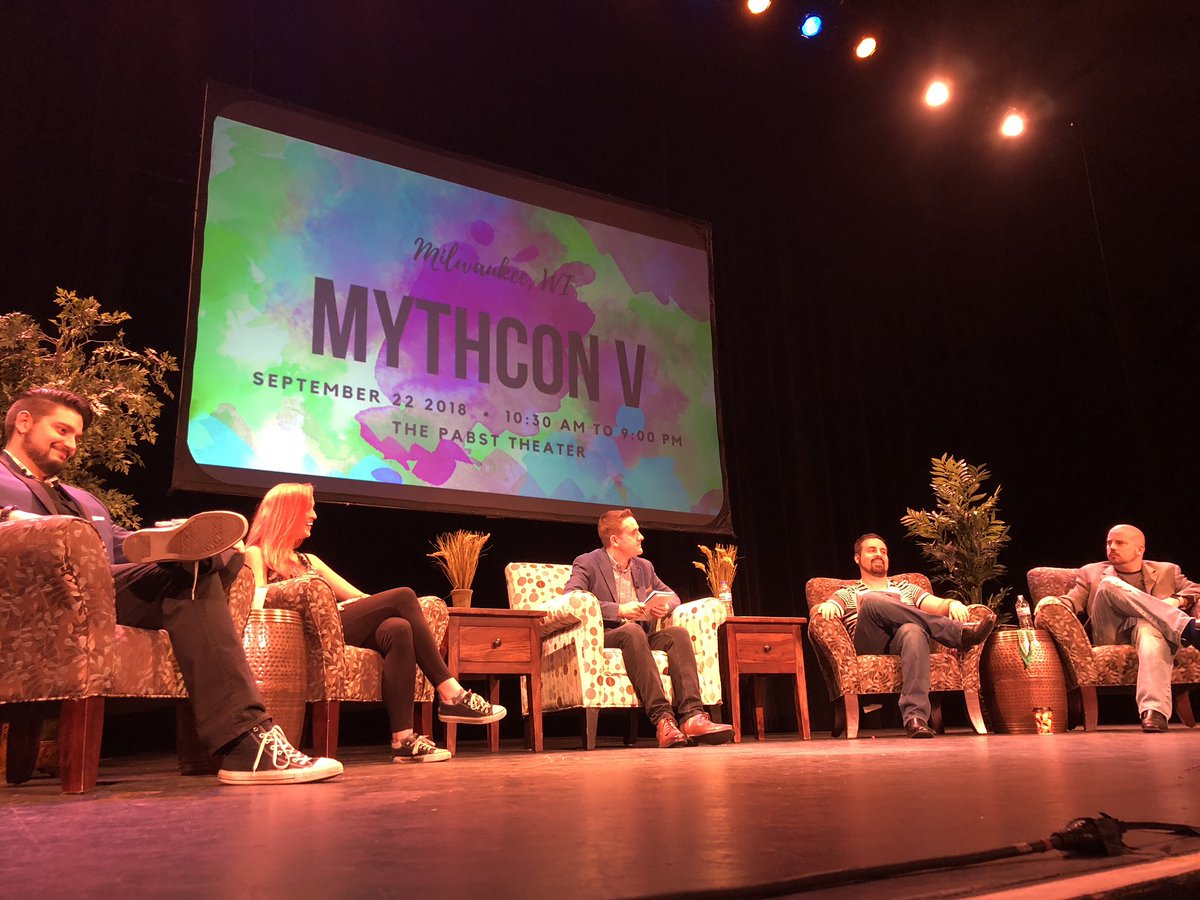Follow this thread for the live-tweeting! (No promises of quality)

"How does Fantasy mean?" and
"What does Fantasy do?"
#BurningHarryPotter

He mentions #BurningHarryPotter as a criticism of Rowling's anti-Tr*MP views wryly adding that "Book burning is of course the best way to alleviate fears of heading towards a dictatorship"
That associatio allowed women and marginalized groups to approach it.
See George MacDonald's instructions on how to read his works. (Hint: not as allegories)
And then came Shannara... Publishers printing books they didn't like but thought they could sell.
HP is a return to high stakes fantasy, with a few powerful symbols (mentions dementors, the time turner...) It's what the book burners respond to.
The book burners and the banners have a higher opinion of fantasy that those who merely read it for fun. They think it matters, it causes something, it is profound.
The more fantasy you read the less comfortable you get with literal readings. Symbols are like homemade rockets: you can never tell when one will go off.
And that's a wrap! Moving on to audience questions with @UofGFantasy asking about the relationship between religion and fantasy.
Attebery laughs at how big the question Rob is asking is. He mentions the different relationships fantasy authors have with religion.
A: not everyone has to! They can often find that wonder in different things.
Attebery mentions the importance of children reading, no matter what it is they read.
A: well that was on some level a happy accident! Lotr is one book published in three volumes for example. Some authors try to write the same book over and over and sell it over and over
A: as long as creating a sense wonder remains central to the fantasy canon.
Attebery mentions that there's a difference between retellings and imitation. Retellings can still be new, original works, whereas imitations add nothing, use no symbols.








